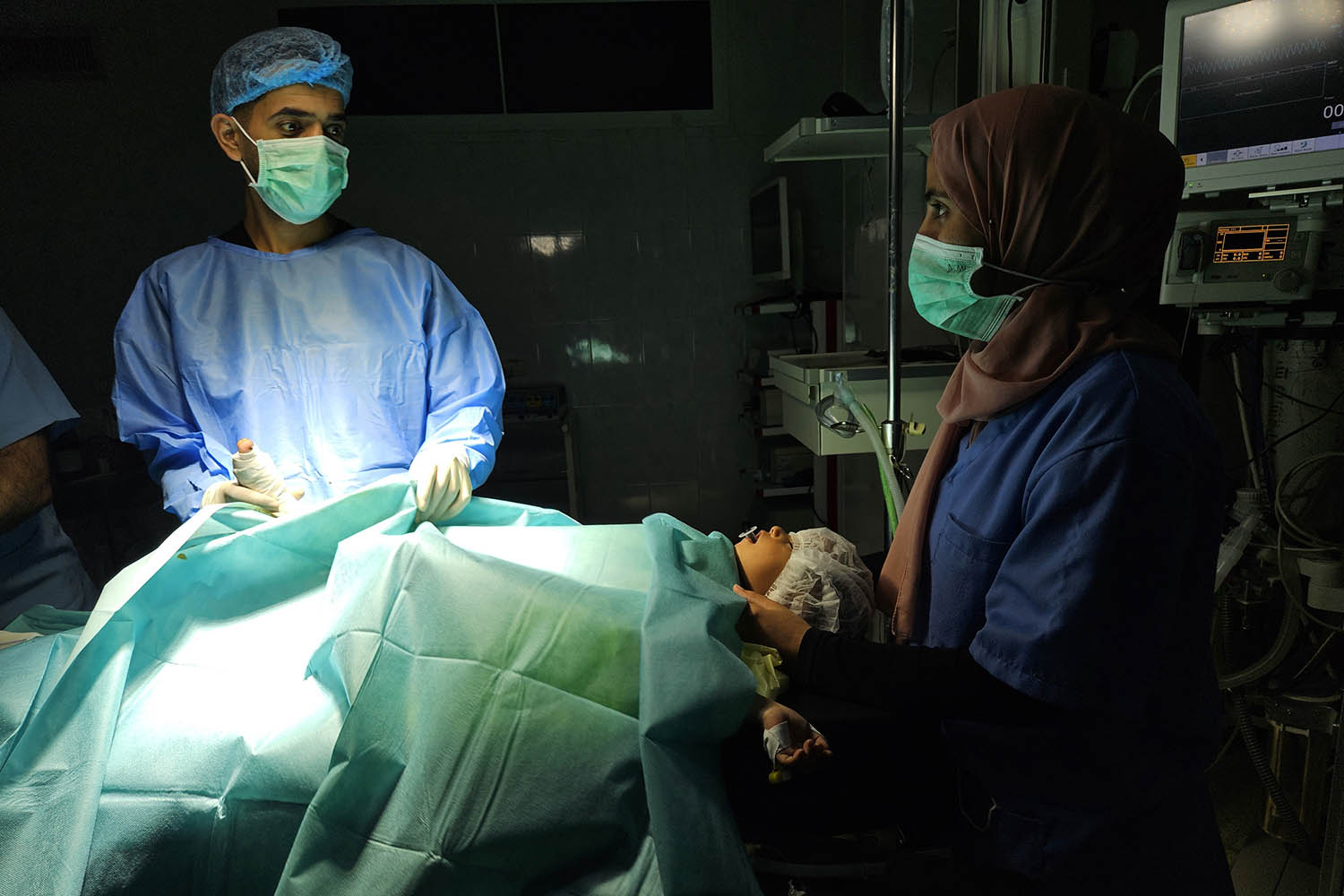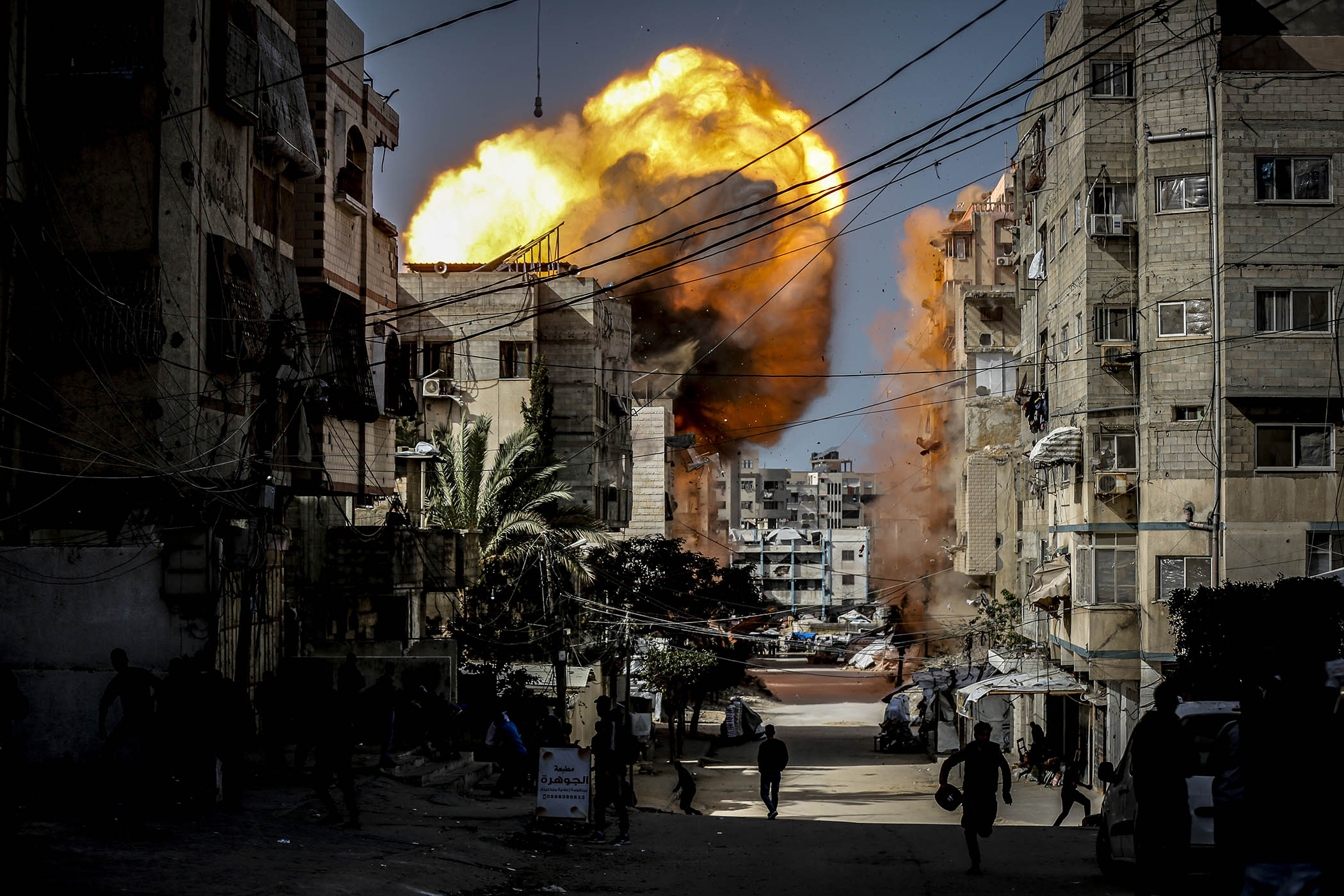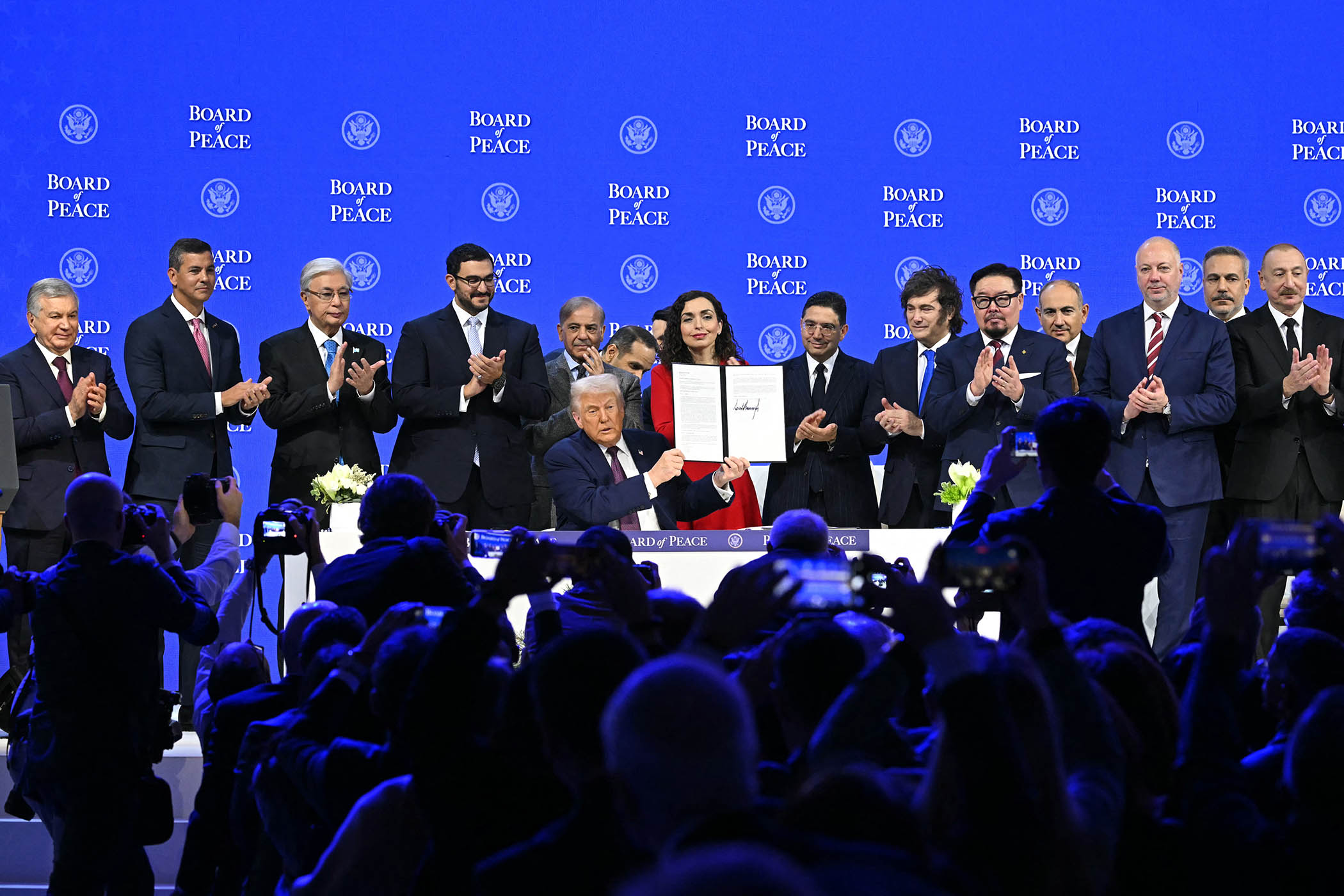Every day the network of eight clinics and a hospital that Dr Mohammed Salha oversees in Gaza fills with thousands of people searching for something to sustain them. They clamour for powdered formulas or food supplements that they hope will keep them and their children alive – but medical staff are forced to tell them that supplies ran dry months ago.
“We used to deal with 250 cases like this a day before this famine, now it is more than 2,000,” Salha says by phone, his voice businesslike but exhausted. A small specialised department in the hospital to feed malnourished children, pregnant women and those breastfeeding is full. “We are completely out of nutritional supplements or milk. It's not a shortage, we simply don't have them in our hospital.”
Last week, the integrated food security phase classification (IPC), a world authority on hunger, said that “the worst-case scenario of famine is currently playing out in the Gaza Strip”. Its latest report on Gaza cites “catastrophic levels of food insecurity”.
According to the World Health Organization, 63 people starved to death in July alone, including children. This famine, it added, “remains entirely preventable”.
The supplies people are desperately searching for were cut off by a full Israeli blockade in early March. In late May Israel, supported by the US, launched the Gaza Humanitarian Foundation (GHF), an opaque militarised system which distributes a reduced amount of food aid.
Israel claims that this system was necessary to prevent Hamas diverting aid, although an internal review by the United States Agency for International Development found no evidence that this was happening. The UN human rights office reported almost 1,400 people killed since late May while seeking food, most of them close to GHF sites.
Human Rights Watch said that by opening fire on civilians at the GHF distribution points, Israeli forces were committing “serious violations of international law and war crimes”. Israeli officials have said that live fire is used as “warning shots” and that their troops are only present near GHF sites that “operate independently”.
Philippe Lazzarini, who heads the UN’s agency for Palestinian affairs, said it has 6,000 trucks of aid awaiting entry to Gaza. The Israeli authorities have blamed the UN for being unable to deliver the aid, while UN agencies point to Israeli blocks that make delivery arduous or impossible.
Related articles:
Instead the international community has increasingly turned to airdrops, which Lazzarini said are 100 times more costly and deliver far less aid. “If there is political will to allow airdrops – which are highly costly, insufficient and inefficient – there should be similar political will to open the road crossings,” he said.
Israeli prime minister Benjamin Netanyahu has denied blocking aid or causing famine, saying: “There is no policy of starvation in Gaza, and there is no starvation in Gaza.”
Newsletters
Choose the newsletters you want to receive
View more
For information about how The Observer protects your data, read our Privacy Policy
This view is increasingly at odds with the scenes inside Gaza’s hospitals, which are causing increasing alarm internationally. Even US president Donald Trump, a long-time ally of Netanyahu, told reporters lastweek: “People are very hungry … it’s a terrible situation.”
Doctors, nurses and medics working to treat those who come to clinics and hospitals for help are struggling to sustain themselves. Salha says he is no longer able to feed his own family, and three employees collapsed in the emergency room last week due to the lack of food: “We are eating just one meal and it does nothing for the body if you're working 24 hours.”
Thomas Adamkiewicz is an American paediatrician volunteering in Nasser hospital in southern Gaza. He fears that the children he is treating who suffer from meningitis or other chronic diseases will struggle to recover from treatable conditions without access to food. “The situation is unacceptable,” he said.
On Friday White House envoy Steve Witkoff visited a GHF distribution point in Gaza, then on Saturday met the families of hostages in Tel Aviv after video of two emaciated hostages was released by Hamas.
Adamkiewicz wishes the pair had visited Nasser hospital to understand what Washington is supporting in Gaza. He said: “An outbreak of disease here would be catastrophic. More kids are going to die and it will be a tipping point.”
Photograph by Hani Alshaer/Anadolu via Getty



